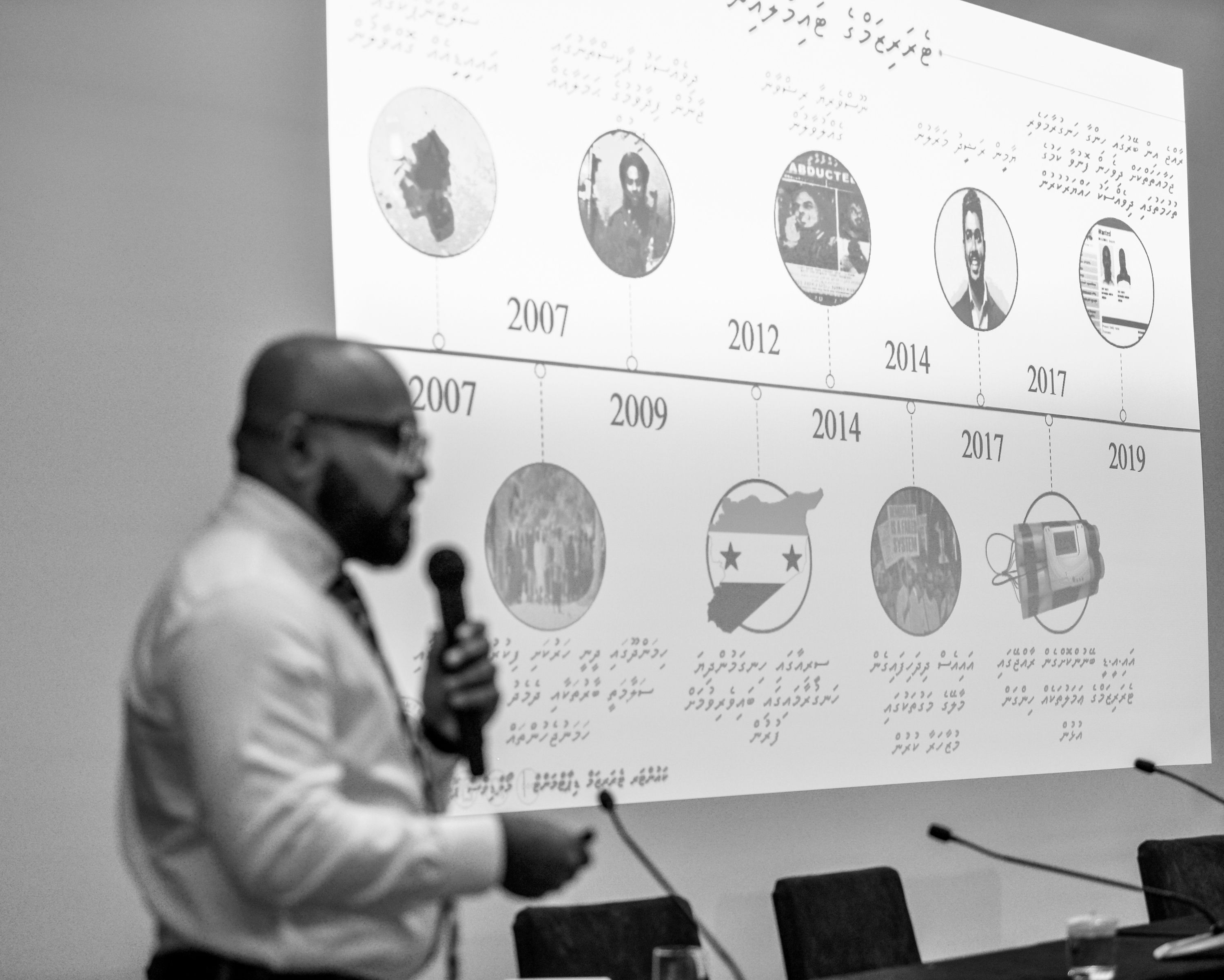About 1,400 extremists ‘willing to kill’ in Maldives
An ISIS bomb plot was foiled in 2017, the police chief revealed.

17 Dec 2019, 09:00
The security services on Monday revealed previously undisclosed information about the extent of religious extremism in the Maldives, including the number of militants overseas and confirmation of a foiled bomb plot in 2017.
“There are close to 1,400 Maldivians with us today across the country who have fallen into extremist ideology to the point where they would not hesitate to take the life of the person next to them,” Commissioner of Police Mohamed Hameed said during a briefing at a conference for councillors.
According to the police chief, 423 Maldivians attempted to join terrorist organisations in Syria and Iraq, of which 173 people managed to enter the war zones. “Hundreds” of local extremists also travelled to Pakistan and Afghanistan before the Syrian civil war, some of whom have been spreading radical ideologies since returning to the Maldives, Hameed said.
The new number of jihadis is significantly higher than the figure of 69 offered by the previous administration, which downplayed the issue and dismissed claims of the Maldives being the highest foreign fighter contributor per capita to Syria and Iraq.
Become a member
Get full access to our archive and personalise your experience.
Already a member?
Discussion
No comments yet. Be the first to share your thoughts!
No comments yet. Be the first to join the conversation!
Join the Conversation
Sign in to share your thoughts under an alias and take part in the discussion. Independent journalism thrives on open, respectful debate — your voice matters.




